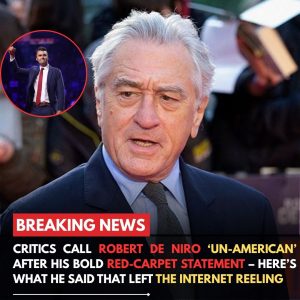Matthew Dowd, longtime political analyst and former strategist, has broken his silence after being abruptly terminated by MSNBC in the wake of comments he made during live coverage of the tragic assassination of conservative figure Charlie Kirk. In an extended statement posted on his Substack, Dowd insisted that his remarks were misunderstood, taken out of context, and ultimately weaponized in a way that cost him a career he had spent decades building. His words, he argued, were less about the individual at the center of the tragedy and more about the broader environment of toxicity and violence in American political life—a truth, he says, too many are unwilling to confront.

The controversy began when Dowd was asked by anchor Katy Tur about the climate in which such shootings take place. At the time, details were scarce. “Keep in mind,” Dowd wrote later, “the only thing known at the time was shots had been fired. There was no confirmation that Charlie Kirk himself had been hit, let alone assassinated.” In that uncertain moment, he speculated it could even have been celebratory gunfire, noting Kirk’s own staunch support of the Second Amendment. He then pivoted to a broader theme: the link between hateful thoughts, hateful words, and ultimately hateful actions. “We are in a toxic time,” he said on air, “unlike every other democracy in the world, where we have a combination of divisiveness and near unlimited access to guns.”
Almost immediately, his comments drew a firestorm of criticism. To many, his words seemed callous or ill-timed, landing as news of Kirk’s death spread. Social media erupted with accusations that Dowd had politicized the tragedy or implied blame on Kirk himself. Within hours, MSNBC President Rebecca Kutler issued an apology on behalf of the network, and Dowd himself released a personal apology for any miscommunication. But the damage was done. By the end of the day, Dowd was informed he had been dropped from MSNBC’s roster of contributors, a position he had held since 2022.
Dowd’s Substack response, however, painted a more complex picture. He acknowledged the backlash but emphasized the temporal context: his remarks came before it was widely known that Kirk had been targeted. He reiterated that his intent was to highlight America’s unique intersection of divisiveness and easy access to firearms, drawing on historical parallels like the Holocaust survivors’ campaign “It Started With Words.” To him, the idea that hate-filled rhetoric breeds violence should not have been controversial. “I thought to myself,” he wrote, “how could anyone disagree with this? I guess I was naive.”
For Dowd, the episode reflects a troubling trend in American media and politics: the rush to condemn, fueled by social media outrage, and the eagerness of networks to sacrifice individuals to appease critics. He argued that “the Right Wing media mob ginned up, went after me on a plethora of platforms, and MSNBC reacted to that mob. Even though most at MSNBC knew my words were being misconstrued, I was terminated by the end of the day.” The speed with which his long career was cast aside has left him deeply frustrated, highlighting how fragile reputations have become in an era where a single moment can overshadow decades of service.
This is not the first time Dowd has found himself under pressure for candid assessments. During his tenure as chief political analyst at ABC News, he frequently criticized Donald Trump, drawing anger from the White House. He recalled that Trump himself and his staff repeatedly called ABC executives demanding his removal, and that ABC management at times urged him to tone down his critiques. He eventually left ABC, citing his unwillingness to self-censor, and later joined MSNBC, where he believed his independence of thought would be valued. The current episode has left him questioning whether there remains space in mainstream media for unflinching honesty.
Meanwhile, the leadership of Comcast, MSNBC’s parent company, sought to address the fallout. CEO Brian Roberts and other executives issued a memo to employees acknowledging the firing, but also stressing the importance of civil dialogue. “We should be able to disagree, robustly and passionately, but, ultimately, with respect,” the letter read. “We need to do better.” It was a call for balance, but also a recognition that the network’s coverage had veered into territory inconsistent with its stated goals of respectful exchange. Still, for Dowd, the corporate mea culpa does little to repair the personal cost of losing his role or the broader damage to his reputation.

At the core of Dowd’s defense is a simple conviction: he spoke aloud a reality too often ignored. That words have power, and that a culture steeped in vitriol inevitably breeds violence. His insistence that “hateful thoughts lead to hateful words which ultimately lead to hateful actions” was, in his mind, not an attack on Kirk but a reminder of the corrosive climate in which tragedies unfold. Now, out of a job, he laments that a single controversial moment could overshadow years of thoughtful analysis and contributions to public discourse. But he also suggests that he will not retreat from saying what he believes to be true. For Dowd, the lesson is both sobering and galvanizing: in today’s media landscape, clarity and courage may come at a steep personal cost, but silence carries a heavier one.





